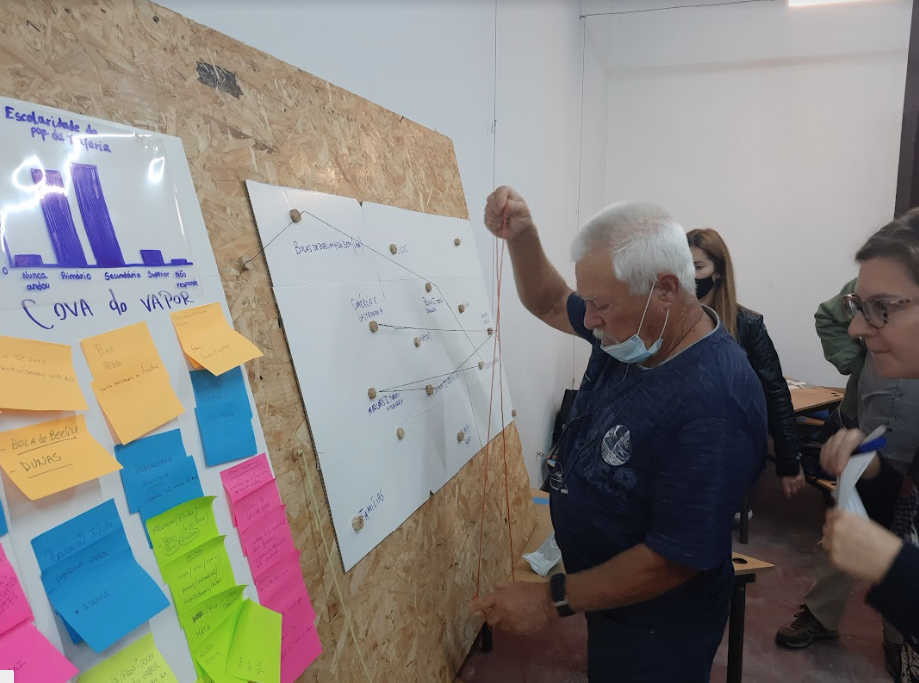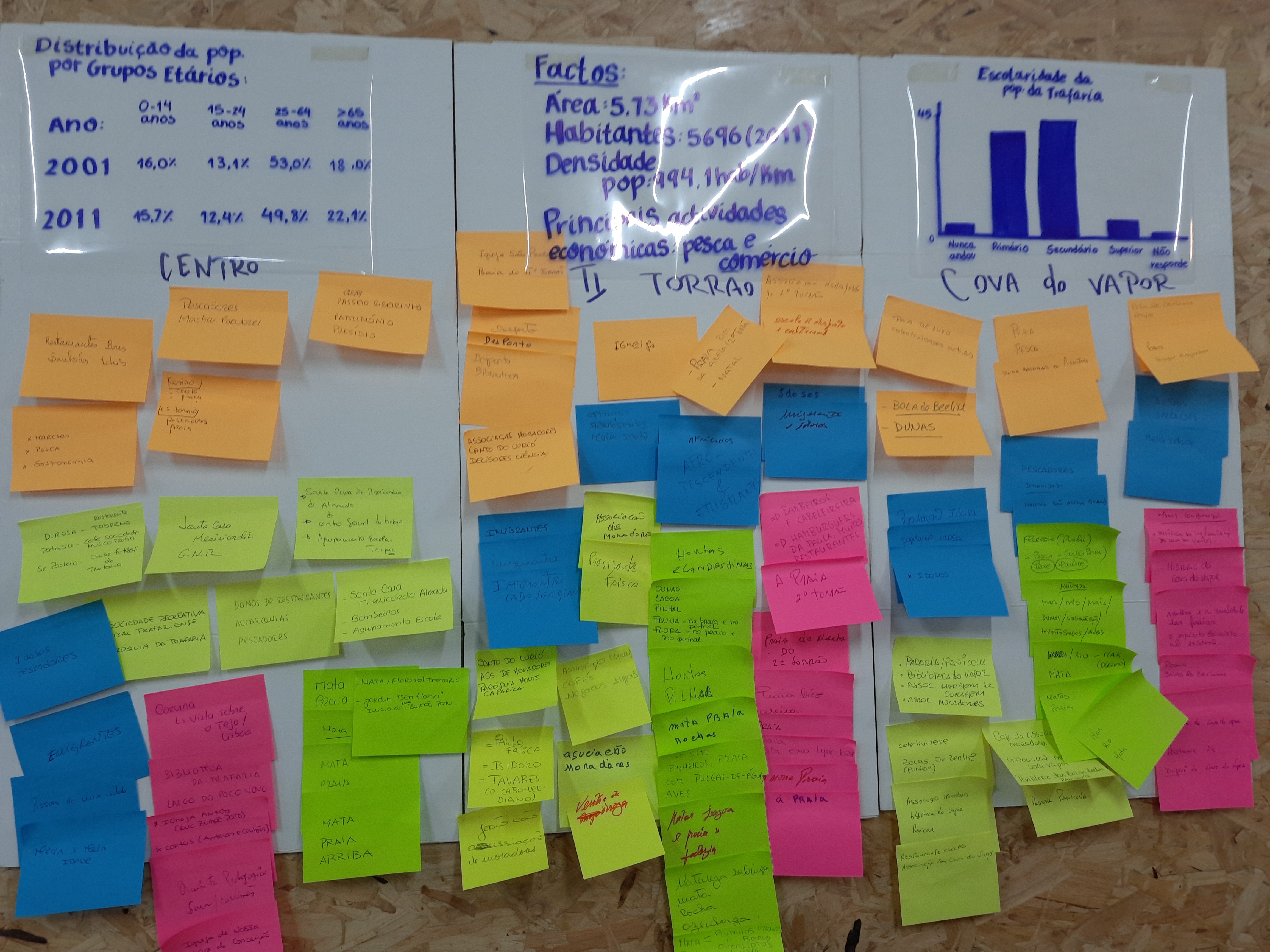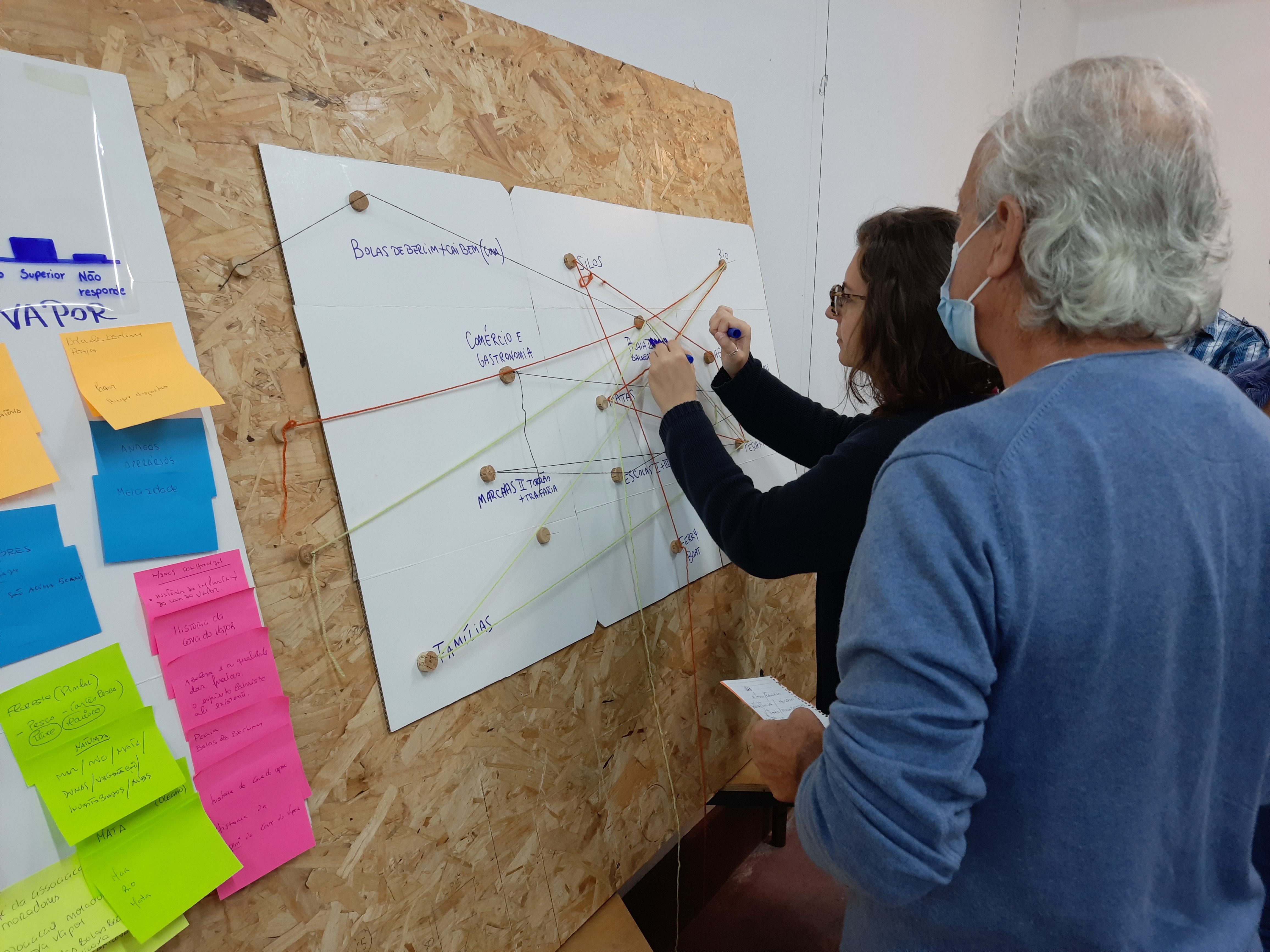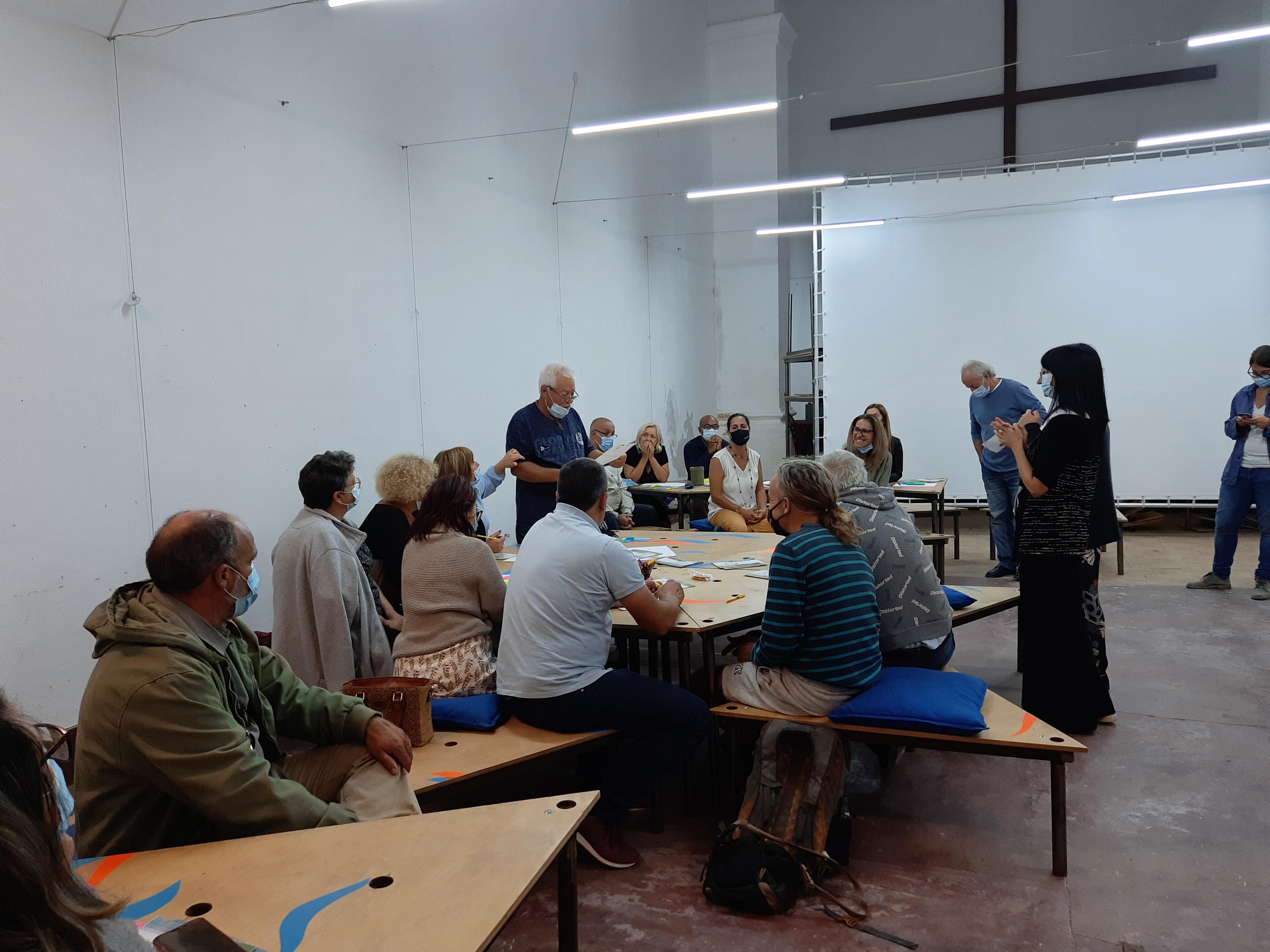The fortress of Trafaria, the T-Factor pilot at the outskirt of Lisbon, hosted in October 2021 the very first Data Campfire. The data justice workshop methodology was elaborated by T-Lab 3 “Citizen-led smartness” leading partner Futuribile to engage inhabitants in developing a bottom-up dataset that will help design meanwhile activities. The local partner Nova University gathered for the occasion representatives of local associations, shops, restaurants and inhabitants. The methodology is reproducible in further urban regeneration contexts, especially in ones poorly characterised by official datasets such as demographic or economic ones.
Why is data justice relevant in the context of urban regeneration? Community organisations and informal leaders are living sensors of the local population’s evolution, needs and challenges. This knowledge base needs to stay relevant in the regeneration process as much as “official” data flows from technological sensors and public authorities’ sources. Indeed, historical reality and desired reality tend to be disconnected. Historical data perpetuate inequalities: data about disadvantaged groups embed and perpetuate their historical disadvantage but tell little about their everyday lives and desires.
The activity consisted in building a three-layer map enriched with data from locals. Two layers are built with the help of participants, while the third is made of official data and is utilised as a touchstone to raise awareness about how data create narratives.
The first participatory layer focused on characterising each of the three main neighbourhoods from individuals’ point of view: for instance, participants were asked to indicate the most representative things, the predominant natural element, or the most common off-the-record activities. The objective was to characterise Trafaria from the bottom-up and highlight emerging commonalities.
For the second layer, groups were tasked with thinking about what the three areas have in common, starting from what they believe makes Trafaria a community, or can help build a sense of community. The building of this layer saw a significant interaction among the participants and open dialogue across tables. Some of the participants decided to share stories about the history of the place, and more personal and intimate stories.
Key discoveries
- The probe led to detect identitarian aspects of Trafaria beyond official data and beyond the expectations of T-Factor partners based in Lisbon: we discovered places we had no idea existed or mattered for people and understood from the participants’ perspective what makes Trafaria unique.
- The methodology is a valuable follow-up to individual interviews with local stakeholders, since it enhances the role that sharing and collectivising individual knowledge can have in placemaking.
- The dynamic format allowed to collect many information and galvanise local stakeholders in less than 2 hours.
- The participants earned basic data awareness and agreed on the fact that the “official” data reveal poor information about Trafaria.
- There is a demand for citizen meetings to talk about past and present issues regarding the territory.
https://www.t-factor.eu/data-campfire-a-methodology-for-data-justice-in-urban-regeneration/
Want to explore the tool?
- Local identity & Heritage
Data Justice Workshop
Harvest citizen knowledge and create a bottom-up dataset about an urban regeneration area
.jpg)



